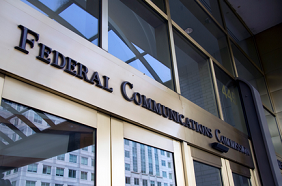NAB: FCC Right to Target Set-Tops

The smarter way to stay on top of broadcasting and cable industry. Sign up below
You are now subscribed
Your newsletter sign-up was successful
The National Association of Broadcasters was taking a bit off the alarm the Future of Television Coalition said the broadcast trade group was sounding over the FCC's new set-top box proposal, though concedes it does have concerns over content protection.
The coalition—comprising cable operators, studios and others concerned about the proposal—had issued a release saying NAB had "gone on the record with deep concerns about the FCC's AllVid proposal," citing a report about an upcoming interview NAB president Gordon Smith conducted for C-SPAN's Communicators series.
In the interview, when asked his take on the set-top proposal given how important broadcast content is to the cable programming lineup, Smith said he "respected the fact" that the chairman was looking into a major cost center (set-top rentals) and gave him credit for fostering competition. But he said that, taking off his broadcaster hat and looking at it from a consumer perspective, he had to ask: "who is the new gatekeeper Is it Amazon, is it Google, I don't know."
But putting his broadcaster hat back on, he said that if the new gatekeepr if it is one of those: "What about my copyrighted material," which he pointed out cable and satellite and telcos engage in tough negotiations for the rights to. "Are they going to sell ads on that, and if so, do they then have no responsibility for what they will take from broadcasters for nothing?" He said there were some "serious legal issues there, and we're paying attention," adding that broadcasters were determined to protect their high-value content.
Asked about the "deep concern" characterization by the coalition, NAB spokesman Dennis Wharton said there were indeed content protection issues, but signaled NAB thought the FCC proposal was aimed at the right target.
“NAB would note that the FCC is right to focus on pay TV set top box fees rather than retransmission consent as the cause for higher cable/pay TV bills," he said. FCC chairman Tom Wheeler cited price and lack of competition as drivers of his proposal to open up cable content to third-party devices.
Wharton said NAB's issues are with content protection—also one of the Future of Television's chief issues. "Our concerns related to this important FCC inquiry are related to copyright protection of broadcaster content," he said, but added: "[W]e’ve been assured by the Commission that intellectual property will be fully protected.”
The smarter way to stay on top of broadcasting and cable industry. Sign up below
FCC general counsel Jon Sallet emphasized that content protection point in a speech this week, and Wheeler has made a point of saying the proposal does not threaten copyrights, but cable operators and studios are unassuaged.
The chairman has summarized, and talked at some length about, the plan but has not released it. He plans a vote on the proposal Feb. 18.
Contributing editor John Eggerton has been an editor and/or writer on media regulation, legislation and policy for over four decades, including covering the FCC, FTC, Congress, the major media trade associations, and the federal courts. In addition to Multichannel News and Broadcasting + Cable, his work has appeared in Radio World, TV Technology, TV Fax, This Week in Consumer Electronics, Variety and the Encyclopedia Britannica.

